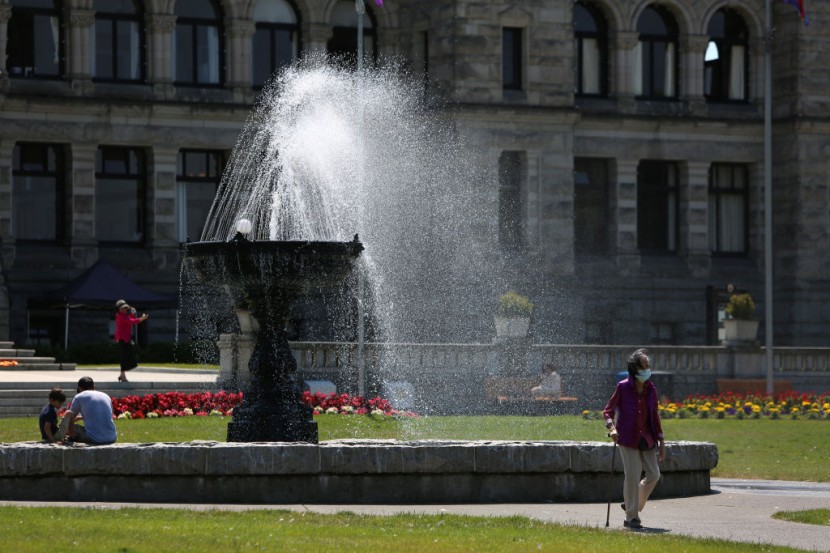
Hundreds of North Americans fatalities have been recorded due to heat-related illness in the course of the past week following a heat wave that hit the US Pacific Northwest US and far southwest Canada. It is believed to be the most fatal weather event yet for the region. The poster town of this devastating episode is Lytton, British Columbia. It broke Canada's all-time national high temperature of 45 degrees Celsius (113 degrees Fahrenheit) with a high of 46.6°C (116°F) on Sunday. Monday brought 47.9°C (118.2°F) and Tuesday had an appalling 49.6°C (121°F).
Meghan Fandrich went for a midnight walk on Tuesday in Lytton, BC. What she witnessed made her wish she had stayed indoors: the red flames and ballooning smoke of an uncontrollable, 350-hectare wildfire raging just south of the town.
Intense Heat Warnings
Extreme hot weather continues to prevail in much of the Prairies as a heat dome moves east. Extreme heat warnings were in place for Saskatchewan, Alberta, Manitoba, and BC Northwestern Ontario on Canada Day.
According to the local MP, a wildfire has ravaged 90% of the village that reported Canada's highest temperature. The fire resulted in enormous damage to Lytton and critical infrastructure around it, reported BBC.
The whole village of Lytton in the province of BC was evacuated following a wildfire quickly taking over the small town on Wednesday. In his evacuation order, Jan Polderman, the village mayor, described fire in the village that threatened the safety of residents and structures, reported NPR.
Read Also : Canadian Company Behind Keystone XL Oil Pipeline Calls It Quits, Project Has Been Halted Since January
On Wednesday, wildfires mushroomed across the area and the intense heat flash-dried the forested landscape. Provincial authorities stated that houses in Lytton have been destroyed.
First, there was intense heat; then there happened wildfires. This cascade of climate-change disasters are what scientists have been cautioning about for years.
Fandrich also said it had been very dry in Lytton, which is about a three-hour drive northeast of Vancouver.
Numerous locations through western Canada broke temperature records on Wednesday. Environment and Climate Change Canada meteorologist Shannon Moodie stated that it is possibly because of climate change.
According to Moodie, "Are we feeling that we're starting to see the impacts? Of course. This is an extended period of extreme heat. We saw Lytton, BC, broke Canada's all-time hottest record three days in a row, so I mean, this is quite substantial," reported CBC.
The mayor of Lytton remarked he was lucky to get out with his own life. He added that there would not be very much left of Lytton as there was fire everywhere.
An estimated 250 people reside in the town around 150 miles northeast of Vancouver.
The fire took around 15 minutes to engulf the whole town not long following his release of the evacuation order at 6 PM on Wednesday.
Related Article : Pope Francis Expresses Pain Over Deaths of 215 Children in Canada but Stops Short of Apology, Abuse Rampant in Schools








